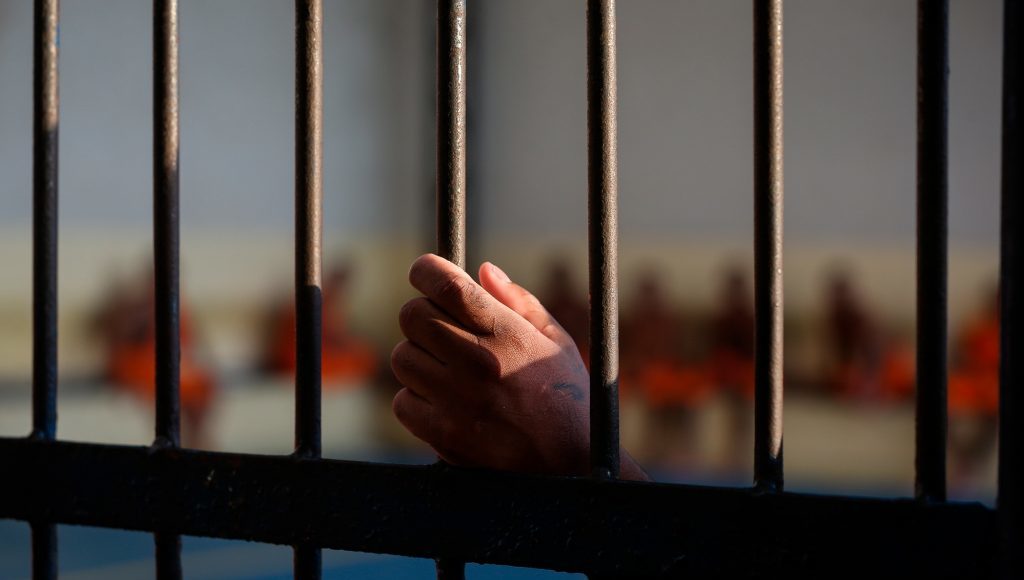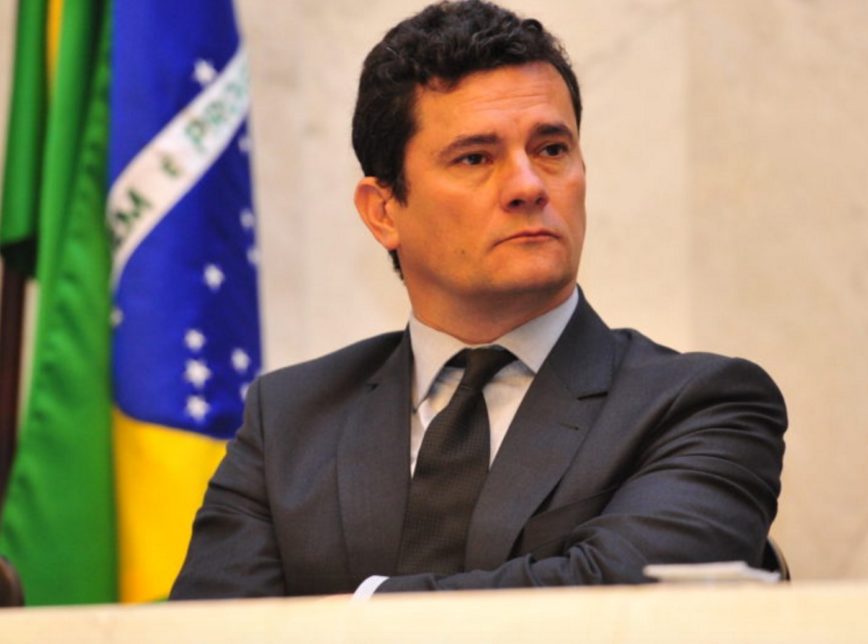RIO DE JANEIRO, BRAZIL – Thousands of men and women detained in Brazilian penitentiaries are living an ambiguous situation. The almost 800,000 prisoners, the third-largest prison population in the world, share overcrowded cells in unsanitary conditions, a fertile ground for the spread of coronavirus and other respiratory diseases – a situation that has already been the subject of denunciations in international courts.

On the other hand, part of this crowd lives in a form of complete social isolation from the outside world. In addition to the suspension of visits in most states and in the federal penitentiary system, a measure adopted to prevent the contamination of prisoners by Covid-19, some local governments have also blocked any legal assistance to prisoners, at a time when the country currently records 54 inmates with the disease and one dead (a 73-year-old inmate from Rio de Janeiro).
The situation is closely monitored and raises concerns in a volatile context of criminal faction- dominated penitentiaries, given the impact of the pandemic on other prisons around the world, such as in Iran and Italy, where there have been riots – the Persian country has released 85,000 prisoners to unburden the system and prevent mass contamination.
According to a survey conducted by El País newspaper, based on the ordinances and technical notes prepared by the prison administration secretariats and submitted to the National Penitentiary Department (DEPEN), linked to the Ministry of Justice and Public Safety, at least 14 states and the Federal District have suspended visits by attorneys and public defenders throughout their territory or in some specific facilities.
The same is true for federal prisons. The states vetoing access to these professionals so far are Rio de Janeiro, Minas Gerais, Bahia, Pernambuco, Amazonas, Rio Grande do Sul, Rio Grande do Norte, Maranhão, Tocantis, Sergipe, Acre, Piauí and Mato Grosso (in addition to the Federal District).
While announcing the suspension, the Government of Rio de Janeiro stated in a note that “legal assistance continues”, provided attorneys are “wearing personal protective equipment (gloves, mask and hand sanitizer)”, and with a prearranged schedule.
Public defenders heard by the paper confirmed the announcement, but said that the bureaucratization of the procedure, coupled with the attendant risks, render visits virtually impossible. Minas Gerais, on the other hand, stated that “it began to request documents that prove the need for face-to-face contact with clients, opening the possibility of conducting routine communication by mail”.
According to the DEPEN, the suspension of services in the federal system is a “form of prevention, control and containment of coronavirus risks (Covid-19)”, and the measure would not be valid for “urgent cases”, says the ordinance signed by the director of the body, Marcelo Stona.
In addition to the suspension of visits and legal services, the states have implemented a number of measures to prevent the spread of the coronavirus, such as expanding sunbathing for inmates, cleaning cells more regularly and isolating inmates over 60 or with chronic diseases – although the issue of isolating inmates in a system with 461,000 places that houses almost 800,000 inmates, is debatable.
The National Council of Justice recommended that prisoners in the open or work-release regimes be sent on house arrest if they present symptoms of the disease, and the public defenders have requested the release of the elderly, measures that were partially complied with and viewed with caution by Moro.
Vulnerability
There is consensus that measures to prevent the coronavirus from spreading behind bars are required, given this population’s high vulnerability.

Although Minister Sérgio Moro said that the prisoners are in a “relatively safe” environment with regard to the pandemic, and that “there is no reason for concern” that the disease will spread in prisons, reality is different. According to data from the DEPEN, by Thursday April 16th, the country had 181 suspected cases of coronavirus in prisons across the country; São Paulo and Minas Gerais lead with 48 and 49 cases, respectively.
The first confirmed case was recorded on April 8th. A little more than a week later, Brazil already counted 54 inmates with Covid-19, an indication that the disease is spreading rapidly behind bars. An inmate died on Wednesday in Rio de Janeiro at the age of 73, but the case was only disclosed on Friday, April 17th. His name has not been released.
The inmates who tested positive for the disease are in the Federal District (38), Pará (four), São Paulo ( four), Pernambuco (two), Roraima (four), Ceará (one) and Santa Catarina (one). According to official information, no inmates have died of the disease in the country.
The suspension of face-to-face assistance by attorneys and defenders has serious consequences for prisoners. “There is a great prejudice to the defense of people deprived of their freedom. It is the attorney who often receives the complaints of inmates: lack of water, clogged bathroom, spoiled food, violence, torture… It’s the attorney who requests a corpus delicti analysis, turns to the judge to request an inspection of the conditions of a facility, and a number of other measures to safeguard the rights of those in prison,” says Everaldo Patriota, coordinator of the prison system for the Brazilian Bar Association (OAB).
He also points out that, in the case of lower-income prisoners, the defenders who visit the prisons are the only link between the inmates and their family, who cannot afford to travel to the facility on visiting days. “When you restrict the attorney’s access to the inmate, you close the door on the prisons and all their troubles to the outside world”. Other human rights organizations working behind bars, such as the Prison Pastoral, have also had their visits suspended.
The restrictions may even hinder judicial proceedings. Petra Silvia Pfaller, national coordinator of the Prison Pastoral, considers the lack of communication with inmates to be “unconstitutional”. “To prevent or hinder the right to legal assistance is serious, after all it is the legitimate defense of the arrested individual that is being violated, there is a risk that the whole proceeding will be nullified by curtailing the right to defense”.
A temporary solution to the legal assistance issue, Patriota points out, would be the implementation of virtual services. “Some states are providing these virtual services. Paraná inaugurated this system in February, and the Federal District is regulating it”.
The Ministry of Justice and Public Safety announced on Tuesday that it is negotiating the purchase of 600 tablet computers, so that prisoners in the federal system may chat virtually with family members weekly. This equipment could also be used for legal services, Moro said.
“This project is still under study and its purpose is to enable virtual visits to inmates by relatives, in the context of coronavirus or without it. Obviously, it won’t be one tablet per inmate, nor will the equipment be left with the inmate to be used as a phone,” Moro said.
In addition to Paraná and the Federal District, other states are also working to ensure virtual assistance to prisoners. In a note, the Secretariat of Justice and Citizenship of Tocantins stated that “a virtual visitation center is being established to attend to legal demands in prison facilities, with the aim of avoiding crowds of people at this time”.
The State Secretariat of Penitentiary Administrations of Maranhão and Amazonas reported having signed agreements with the OAB to regulate the attendance of attorneys by videoconference in the prison system. The secretariats in charge of penitentiary matters in other states have not announced what measures they intend to implement to ensure legal assistance to prisoners.
Unable to assist inmates in prison facilities, alternative solutions must be found. Lúcia Helena Silva Barros de Oliveira, coordinator of the Criminal Policy Commission of the National Association of Public Defenders, says that “although the suspension is critical, defenders have not stopped, and remain committed to analyzing each prisoner’s situation”.
According to her, public defenders are focused on “developing and enhancing new assistance methods,” making use of available online resources. “Unfortunately there are many physical procedures and the courts are not open to the public. “We all come out losing with the pandemic, and what’s left is to try to minimize the losses,” she concludes.
Source: El País

